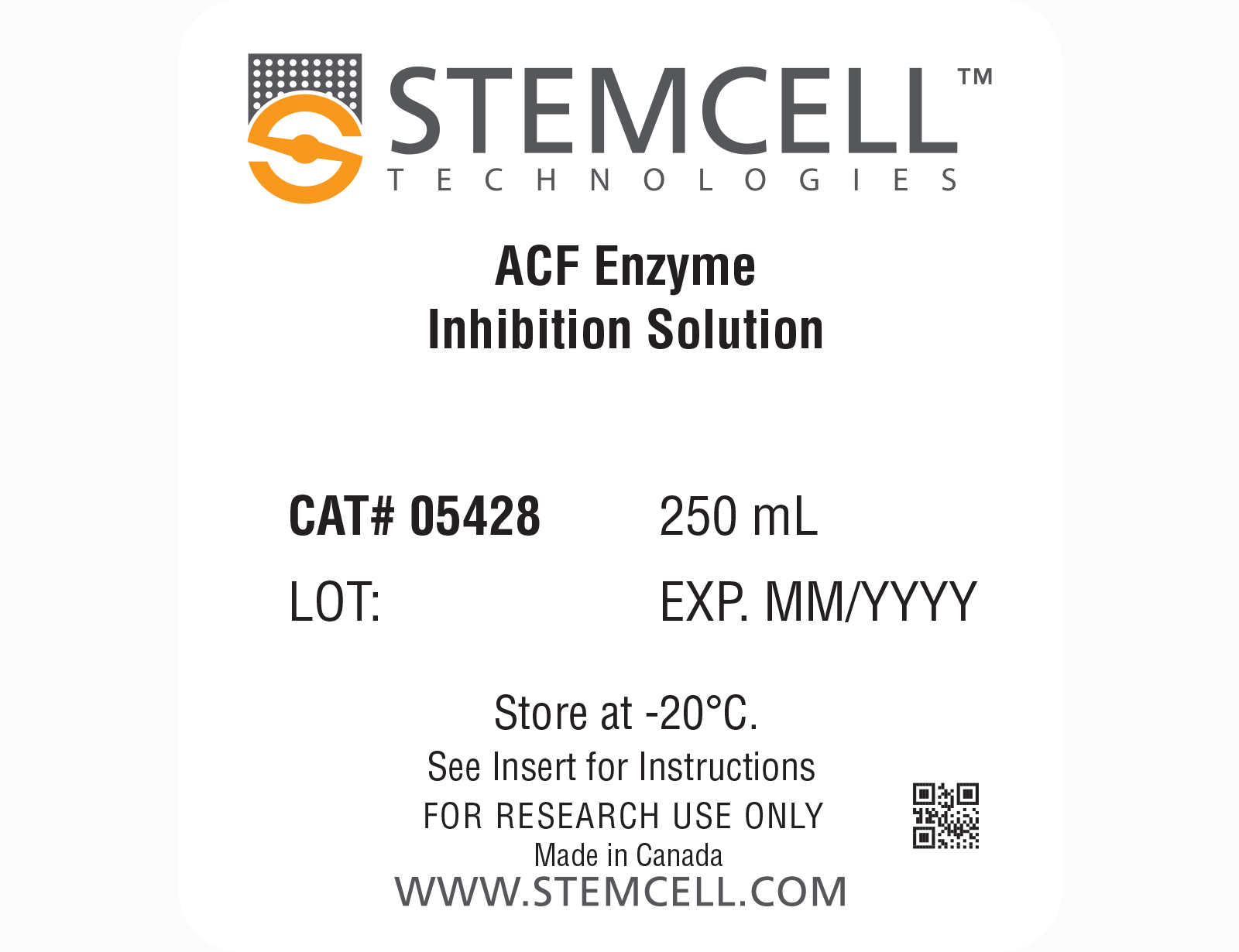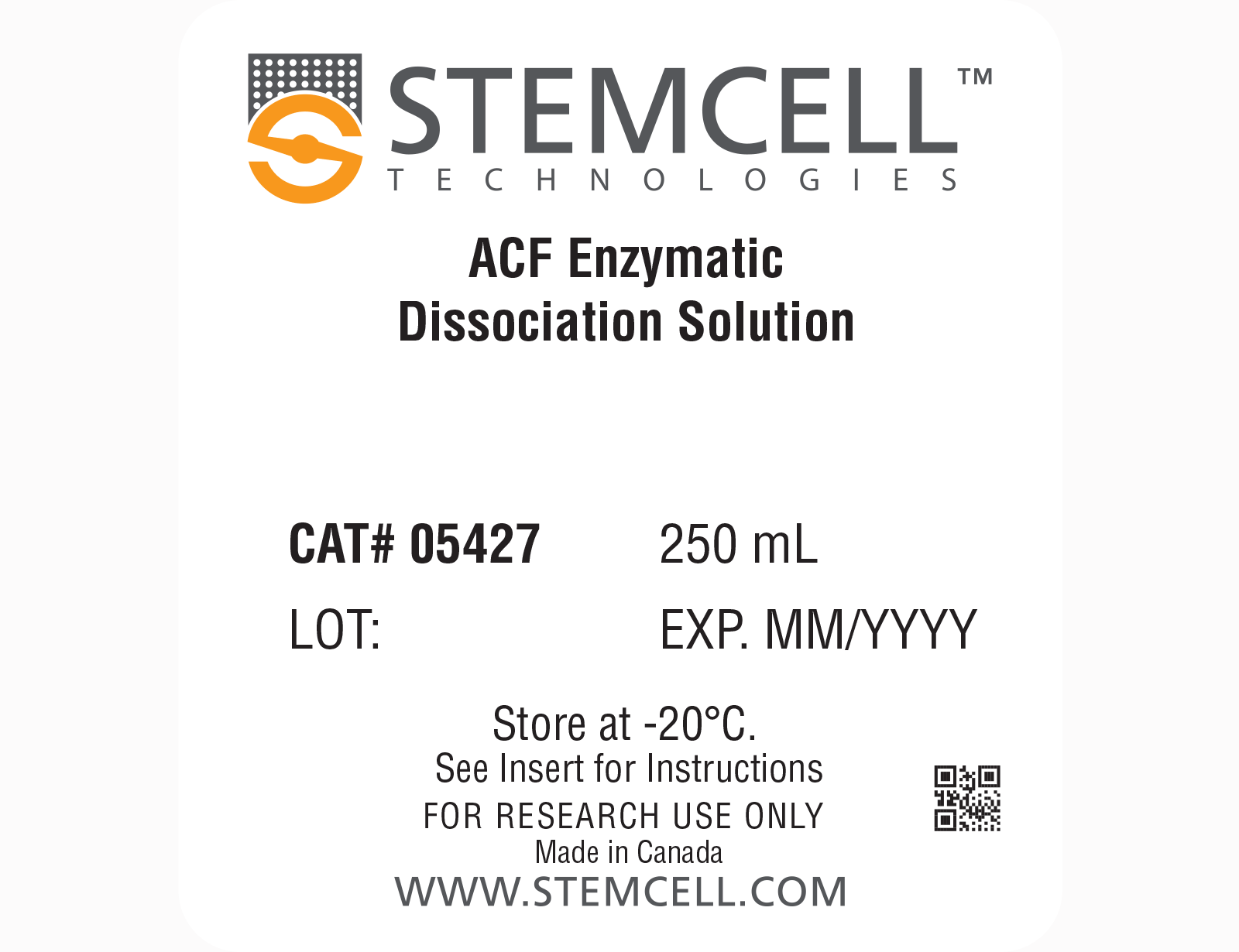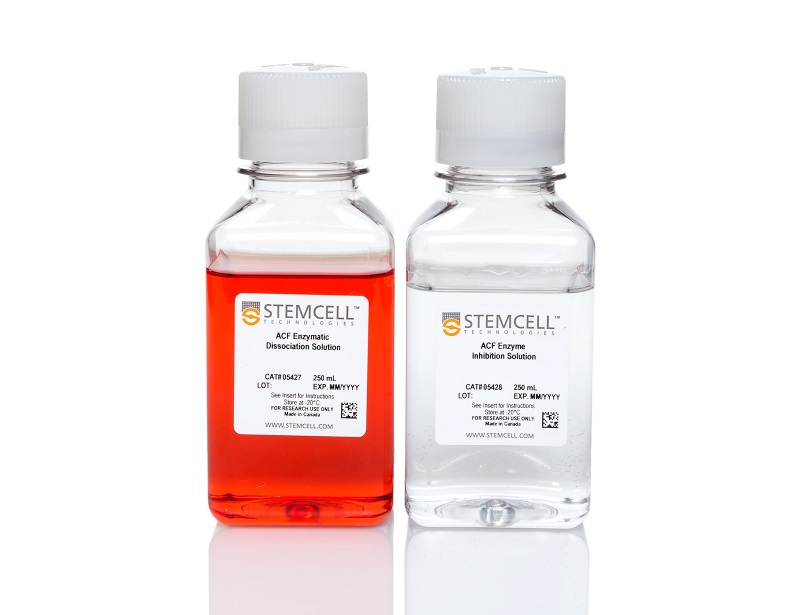Animal Component-Free Cell Dissociation Kit
Dissociation kit for human stem and progenitor cells
概要
Animal Component-Free Cell Dissociation Kit is optimized for dissociation and passaging of human stem and progenitor cells cultured in various media formulations. Animal Component-Free Cell Dissociation Kit includes ACF Enzymatic Dissociation Solution and ACF Enzyme Inhibition Solution.
This kit was previously named MesenCult™-ACF Dissociation Kit. The name was changed to accommodate the use of this product with other cell types.
This kit was previously named MesenCult™-ACF Dissociation Kit. The name was changed to accommodate the use of this product with other cell types.
Advantages
• Animal component-free solutions optimized for the dissociation and passaging of human stem and progenitor cells
Components
- ACF Enzymatic Dissociation Solution, 250 mL
- ACF Enzyme Inhibition Solution, 250 mL
Subtype
Enzymatic
Cell Type
Endothelial Cells, Endothelial Colony Forming Cells (ECFCs), HUVECs, Mesenchymal Cells, PSC-Derived, Mesenchymal Stem and Progenitor Cells, Myogenic Stem and Progenitor Cells
Species
Human
Brand
MesenCult
Area of Interest
Endothelial Cell Biology, Stem Cell Biology
技术资料
| Document Type | 产品名称 | Catalog # | Lot # | 语言 |
|---|---|---|---|---|
| Product Information Sheet | Animal Component-Free Cell Dissociation Kit | 05426 | All | English |
| Safety Data Sheet 1 | Animal Component-Free Cell Dissociation Kit | 05426 | All | English |
| Safety Data Sheet 2 | Animal Component-Free Cell Dissociation Kit | 05426 | All | English |
数据及文献
Publications (2)
Experimental cell research 2011 NOV
Focal adhesion protein abnormalities in myelodysplastic mesenchymal stromal cells.
Abstract
Abstract
Direct cell-cell contact between haematopoietic progenitor cells (HPCs) and their cellular microenvironment is essential to maintain 'stemness'. In cancer biology, focal adhesion (FA) proteins are involved in survival signal transduction in a wide variety of human tumours. To define the role of FA proteins in the haematopoietic microenvironment of myelodysplastic syndromes (MDS), CD73-positive mesenchymal stromal cells (MSCs) were immunostained for paxillin, pFAK [Y(397)], and HSP90α/β and p130CAS, and analysed for reactivity, intensity and cellular localisation. Immunofluorescence microscopy allowed us to identify qualitative and quantitative differences, and subcellular localisation analysis revealed that in pathological MSCs, paxillin, pFAK [Y(397)], and HSP90α/β formed nuclear molecular complexes. Increased expression of paxillin, pFAK [Y(397)], and HSP90α/β and enhanced nuclear co-localisation of these proteins correlated with a consistent proliferative advantage in MSCs from patients with refractory anaemia with excess blasts (RAEB) and negatively impacted clonogenicity of HPCs. These results suggest that signalling via FA proteins could be implicated in HPC-MSC interactions. Further, because FAK is an HSP90α/β client protein, these results suggest the utility of HSP90α/β inhibition as a target for adjuvant therapy for myelodysplasia.
Cytotherapy 2006 JAN
Minimal criteria for defining multipotent mesenchymal stromal cells. The International Society for Cellular Therapy position statement.
Abstract
Abstract
The considerable therapeutic potential of human multipotent mesenchymal stromal cells (MSC) has generated markedly increasing interest in a wide variety of biomedical disciplines. However, investigators report studies of MSC using different methods of isolation and expansion, and different approaches to characterizing the cells. Thus it is increasingly difficult to compare and contrast study outcomes, which hinders progress in the field. To begin to address this issue, the Mesenchymal and Tissue Stem Cell Committee of the International Society for Cellular Therapy proposes minimal criteria to define human MSC. First, MSC must be plastic-adherent when maintained in standard culture conditions. Second, MSC must express CD105, CD73 and CD90, and lack expression of CD45, CD34, CD14 or CD11b, CD79alpha or CD19 and HLA-DR surface molecules. Third, MSC must differentiate to osteoblasts, adipocytes and chondroblasts in vitro. While these criteria will probably require modification as new knowledge unfolds, we believe this minimal set of standard criteria will foster a more uniform characterization of MSC and facilitate the exchange of data among investigators.



